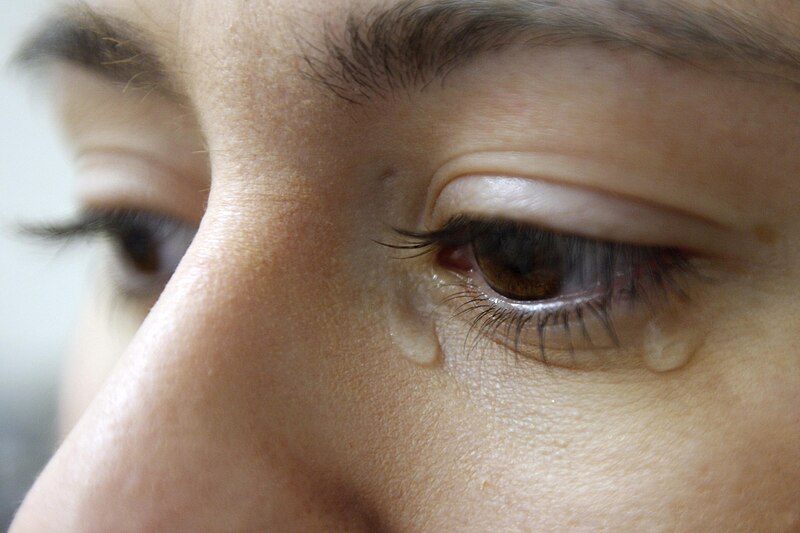Summary | Excerpt | Reviews | Beyond the Book | Read-Alikes | Genres & Themes | Author Bio

A Novel
by Roisín O'DonnellThis article relates to Nesting
 Ciara Fay, the protagonist of Roisín O'Donnell's novel, Nesting, is the victim of emotional abuse, although she remains unaware of this for most of the book. Also referred to as psychological abuse or psychological aggression, this behavior erodes another person's sense of self-worth until they develop a psychological dependency on their abuser. Although emotional abuse can be as damaging as physical abuse, it can be hard to detect, particularly if a person grew up in an emotionally abusive environment. Since it leaves no outward marks on the victim, those afflicted often can't prove they've been abused even if they gather the strength to leave the relationship; without proof, it comes down to one person's word against another's.
Ciara Fay, the protagonist of Roisín O'Donnell's novel, Nesting, is the victim of emotional abuse, although she remains unaware of this for most of the book. Also referred to as psychological abuse or psychological aggression, this behavior erodes another person's sense of self-worth until they develop a psychological dependency on their abuser. Although emotional abuse can be as damaging as physical abuse, it can be hard to detect, particularly if a person grew up in an emotionally abusive environment. Since it leaves no outward marks on the victim, those afflicted often can't prove they've been abused even if they gather the strength to leave the relationship; without proof, it comes down to one person's word against another's.
Emotional abuse is shockingly common, and can be perpetrated against a person of any gender. A 2010 survey from the CDC found that over 48% of both men and women had experienced psychological aggression by an intimate partner at least once, making emotional abuse the most common form of intimate partner violence. And it can be extremely damaging to a person's mental health: one study found that 7 out of 10 psychologically abused women had PTSD.
Emotional abuse can take many forms, and often several types of abuse can take place in a single situation. In Ciara's case, one of the primary tools her husband uses is gaslighting, a form of manipulation whereby the perpetrator convinces their victim that they're not remembering things properly. The end result is that the individual doubts their own judgement or the version of events they remember. Ciara also endures her husband isolating her from family and friends, attempting to control her through limiting her access to their finances, blaming her when things don't go according to his plan, and giving her the silent treatment—all typical signs of an emotionally abusive partner. Other types of behavior that might fit this category include publicly humiliating the victim, nitpicking their appearance or behavior, doubting everything they say, or refusing to accept any difference of opinion. In many cases, the sufferer gets used to being belittled, and the ongoing chaos becomes their new normal.
Often, outsiders will say or think that if the abuse is so bad, the individual should "just leave"—in other words, they blame the victim for the circumstances in which they find themselves. That ignores how challenging it is for those in an abusive situation to make such a dramatic change. For one thing, a common phase of the "cycle of abuse" is that the perpetrator expresses remorse for their behavior and acts kinder for a period of time, giving the victim hope that their partner has changed. More often, fear plays the bigger role in staying put—fear that the abuser will hurt them or their children, fear they won't be believed, fear they can't make it on their own, and sometimes even fear that the other person is right, that they really are crazy, difficult, or unstable.
Leaving an emotionally abusive relationship is just the first step towards safety; staying away is often just as hard as leaving in the first place. The perpetrator will often be on their best behavior to try to get their partner to return; also, victims of emotional abuse will often feel guilty, like everything is their fault, and they may feel like they were in the wrong for instigating a breakup. Also, the individual may face challenges supporting themselves (made even more difficult if children are involved) that may cause them to feel returning to their partner is the right thing to do.
That's not to say healing is impossible, it's just not easy. In Nesting, Ciara finds support through free resources the Irish government makes available for individuals in crisis. Many nations have free assistance available for people in similar circumstances. The United States has a National Domestic Abuse Hotline available 24/7 at 1-800-799-7233, as does the UK at 0808-2000-247.
Picture from Wikimedia Commons
Filed under Society and Politics
![]() This article relates to Nesting.
It first ran in the March 26, 2025
issue of BookBrowse Recommends.
This article relates to Nesting.
It first ran in the March 26, 2025
issue of BookBrowse Recommends.
I find that a great part of the information I have was acquired by looking something up and finding something else ...
Click Here to find out who said this, as well as discovering other famous literary quotes!
Your guide toexceptional books
BookBrowse seeks out and recommends the best in contemporary fiction and nonfiction—books that not only engage and entertain but also deepen our understanding of ourselves and the world around us.